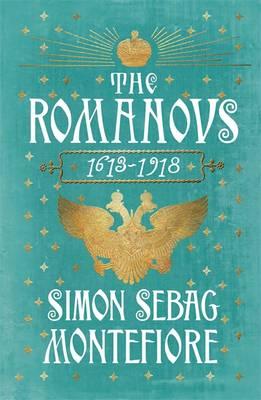
I have previously enjoyed Montefiore’s writing on Catherine the Great and especially Stalin as well as his recent TV series on the history of Spain. His work is usually carefully researched and this instance proved to be no different. He has, along with others, benefitted immensely from previously unavailable documentation freed after the collapse of the Soviet Union. His style that of heavily academic history but toward a well-informed personal history that is very readable – and he largely succeeds in this case.
His brief is huge and even a book this size can only cover within a certain range. Montefiore succeeds with the following the role this family played over three hundred years as autocrats holding together the centripetal forces constantly trying to pull apart their collection of land and serf possessions. At the same time, there is the march of history externally with huge social, political and cultural waves, especially from the East, constantly breaking over their Empire.
The insights into the family lives, sex lives and interests of the various tsars are quite gripping if, at times, repulsive especially when it came to their treatment of what were perceived as criminals, miscreants or simply obstructions. They were also effective in a blundering manner as it is clear that in this largely feudal society autocracy was the only alternative to disintegration. The only problem being that successful autocracy prevented, or fatally delayed, movements toward any kind of social or political evolution.
One constant throughout their history was warfare in various forms. This contemporary reader had a real problem in encountering repeated actions where literally hundreds of thousands went to their bloody deaths.
Apart from the insights into the personal and sex lives of the Tsars (all of those tasty personal documents now available) which sometimes became quite repetitive, boring and uninformative, I believe I did gain valuable understandings from this book. The Russia I grew up with in the 1950’s was a grey and mysterious place and has undergone massive change in my lifetime. Yet, understanding those changes and its current condition led again by a Tsar-like figure who invokes a tribal sense of nationalism (football hooliganism on TV as I write) and close linkages to an unreconstructed religious institution that is happy to target LGBTI people is still a puzzle. However, some understanding can be drawn from looking at this historical context but it is not an immediately hopeful one.
Don’t get me wrong. This is an interesting and valuable read. I recommend it.
